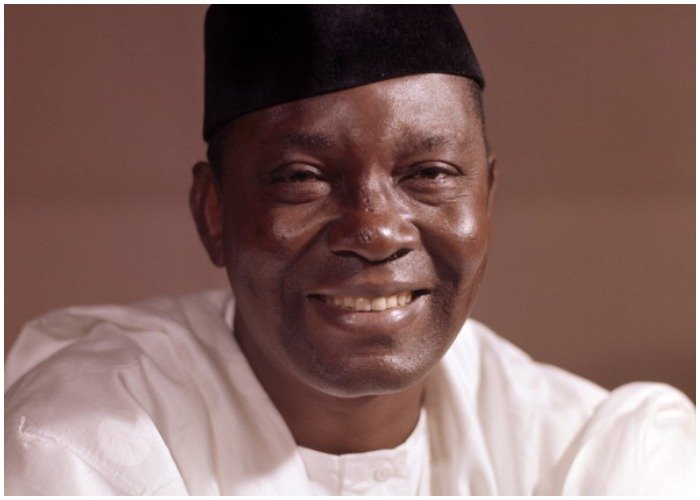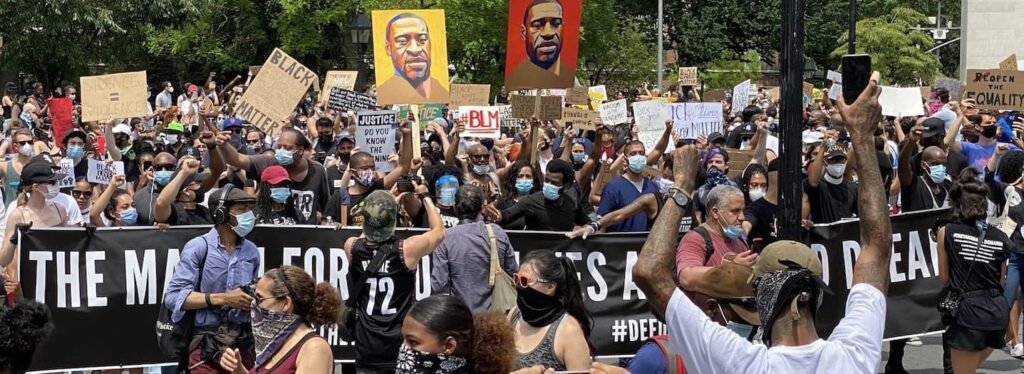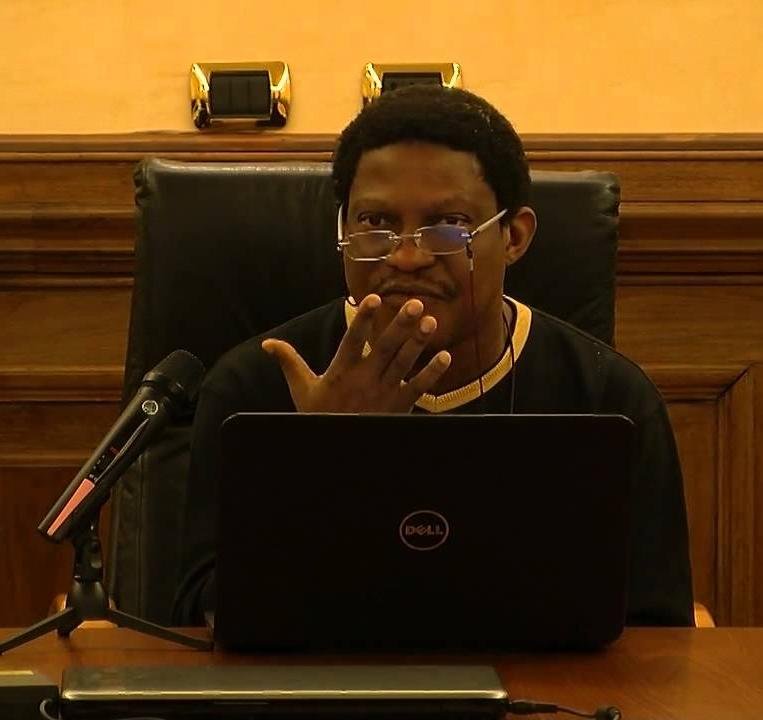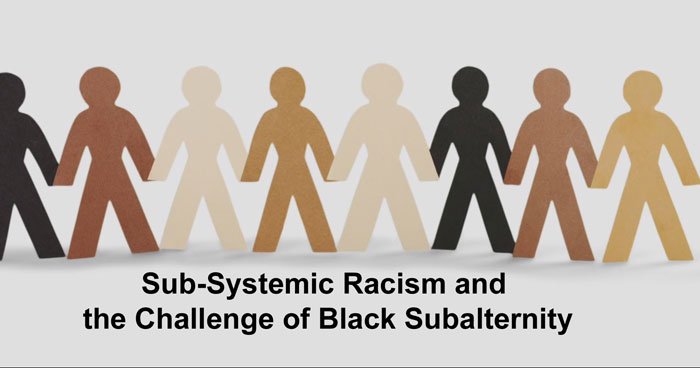About 12:50 am, on a dark, early morning in the Summer of 1927, a young African immigrant lay across a tram track in the Central Avenue area in Pittsburg, grimly waiting for an on-coming tram to crush his life. Hungry, jobless, friendless, penniless and unable to continue with his college education, he had come to the limits of his endurance and decided to end his miserable life. But Benjamin Nnamdi Azikiwe will not die on this day; an unknown hand, that apparently never wanted to be known, thinking and acting quickly, pulled him off the tracks in time to save his life. This person took him back to his hostel, where he had a glass of milk and slept off. When he woke up, he found enclosed in an envelope five dollars and a note assuring him help. Rev Dr A. M. Lamb, came as the promised help the very same day, before the end of lunch. This white Rev gentleman gave Azikiwe a good meal, a job and the mentorship he so much lacked, for the rest of his stay. Azikiwe was then able to graduate from Lincoln University, get two Master’s degrees and return to Nigeria in 1934.

Zik as he was nicknamed in the US, became a legendary anti-colonialist in West Africa, inspiring very many people including Kwame Nkrumah to get some education in the United States and stand up for the freedom, dignity and progress of the black peoples of the world. For Zik, overcoming the obvious global black subalternity was a fundamental problem and challenge. All over the world then, as now, blacks were subalterns, of the meanest types, in many cases. His vision of a strong dignified black people in a black state led him to build one of the fastest, if not the fasted, growing economy in the developing world when he was the Premier of the Eastern Region of Nigeria, in the 1950s, the first indigenous university in Nigeria, perhaps Africa, the University of Nigeria, and immense sacrifices (of power and personal gain; becoming a ceremonial president and head of state rather than executive prime minister, for example) to have a big united Nigeria that can drive the development of the black race.
Over five decades after the struggles against colonialism and colonial racism, especially in these times of renewed questionings of racism, one may look again at what became of Zik’s trans-Atlantic and pan-African vision of black liberation from indignity. Had it all been in vain? Are there enduring accomplishments that could be built on, in Nigeria, nay Africa, especially since the rise of a vicious, extremely narrow minded, rapacious elite that has made nonsense of independence with counter-development politics and campaigns of internal colonization?
Though there have been quite some advancements, especially at personal levels, black subalternity remains. But is this due to racism, some global racist conspiracy, which, for example, manifests virulently in the United States in the killings, the seemingly ever-present killings of black people by a racially biased law enforcement and forms of systemic racism in the West generally? Let me begin with a closer look at the trans-Atlantic interactions and mutual reinforcements of diaspora and continental blacks in which the US has been very significant.
The distinguished black writer and civil rights advocate, James Baldwin, said in his Cambridge Union speech in the mid-1960s that the freeing process and attendant dignity of continental Africans from 1945 onwards, tremendously transformed the self-image of American blacks and made the civil rights movement possible, apparently giving American blacks the confidence and spur to insist on their rights.
America had nursed this freedom and dignity in many ways. From providing the means to education for the anti-colonialists like Zik and Nkrumah, the charities, personal and organizational, that helped these early migrants from Africa who came in search of education and jobs, to the pressures put on the post-World War II colonial governments to free the colonies and live up to the ideals of freedom for which the war was fought. America, especially the fair-minded peoples of America, contributed in no small measure to the independence of the colonies of Europe.
Unfortunately, however, independence has not yielded the promise it held. Mostly, the inept kleptocrat leaders of Africa see only the rackets they run in the name of governance, while they try to deflect criticisms, shirk authoriality and their responsibility in the making of the modern day African mess; in the process, they may evoke ghosts of colonization or spectral forms of colonization and racism. One look at Robert Mugabe’s use of re-colonization and neocolonialism as bogeymen and vengeful ghosts to keep a hold on power will dispel any doubts. Are there lessons in this for black peoples generally: lessons in the failures of agential integrity and personal responsibility? It seems that there are parallels to be drawn with the experiences of diaspora and continental blacks.
For some time now quite a number of black American scholars and pundits have been pointing to the falsity in the claims of systemic racism and the use of this as bogeyman by politicians to gain or keep power. Thomas Sowell, Walter Williams, Glenn Loury, Larry Elder are some of the older generation of scholars and pundits in this, but there are also fascinating younger people such as John Whorter and Jason Riley as well as millennials, the firebrand Candace Owens and the philosophical Coleman Hughes, for example. There is no system rigged against blacks, not any more, they claim, broadly; and, rather correctly, I would say, because there are hardly any laws, regulations or protocols enjoining racist behavior. But then why are outcomes so disproportionately different for blacks in many spheres of life, many would ask.

To begin with though there is apparently no systemic racism, “sub-systemic” racism may not be ruled out. This is when a system, though not intended by law or similar structures to serve the cause of racism, nevertheless does so, because its operators, in their individual operational capacities, all too frequently act in racist ways, which when aggregated become significant. It is inter-personalized racism within the confines of formal relations – a sort of by-formal racism (which could easily have subterranean and spectral aspects). This is racism by way of negligence and failure to protect – failure to exercise responsibility to protect citizens, in this case specific minorities, if I may borrow some of Rhoda Howard-Hassmann’s thoughts. However, it has to be proven that this sort of inter-personalized racist behavior is prevalent, significant and accommodated by a state.
Black conservative scholars say this sort of racism exists but is not significant nor is it the obstacle to black progress; if it were, it is argued, it would have had similar effects on second generation Caribbean migrants who are indistinguishable from native black Americans and share a similar history. These groups of people earn 58% more than native black Americans; have more stable two parent homes; are more hardworking; have cultivated better interactive skills especially in dealings with authority figures from parents to public figures such as the police, are less likely to drop out of schools and colleges. And, it is also said that blacks are more likely to be spendthrift in relation to luxury and unnecessary acquisitions. They don’t also see any good in reparations or quotas because of the tendency to encourage some type of hazy black victimological rentier economy and the subversion of merit, respectively, with attendant negative effects for all in the public sphere, etc. So, in the end, continued black subalternity in the US is not anchored in sub-systemic racism but the social toxins in black culture. Clearly, sub-systemic racism weighs much less in the scales comparatively.

This conclusion resonates a good deal with many thinking people in continental Africa. It is not really a world of international racist capitalist states and operators that are keeping Africa down but her own leaders and their toxic cultures. Africa needs a cultural revolution, says Daniel Etounga-Manguelle, a Cameroonian economist. It seems to me, therefore, that while the system is combed and refined to remove traces of racism (advisedly, with a prudent eye on containing the hard wires of nature, the flaws of the human condition, counter-productivity, negative returns, communal and national self-destruction ), it is time once again for mutual trans-Atlantic education and support, but this time it seems that it would be for self-knowledge, personal responsibility and the building of the capabilities that make positive freedom, personal and communal development possible. All of these are key ingredients for the success of black African states and the termination of black subalternity globally.

Joseph C. A. Agbakoba is a professor of philosophy and social theorist at the University of Nigeria, Nsukka. His most recent book is Development and Modernity in Africa published in Cologne by Ruediger Koeppe Verlag in 2019.
![]()



